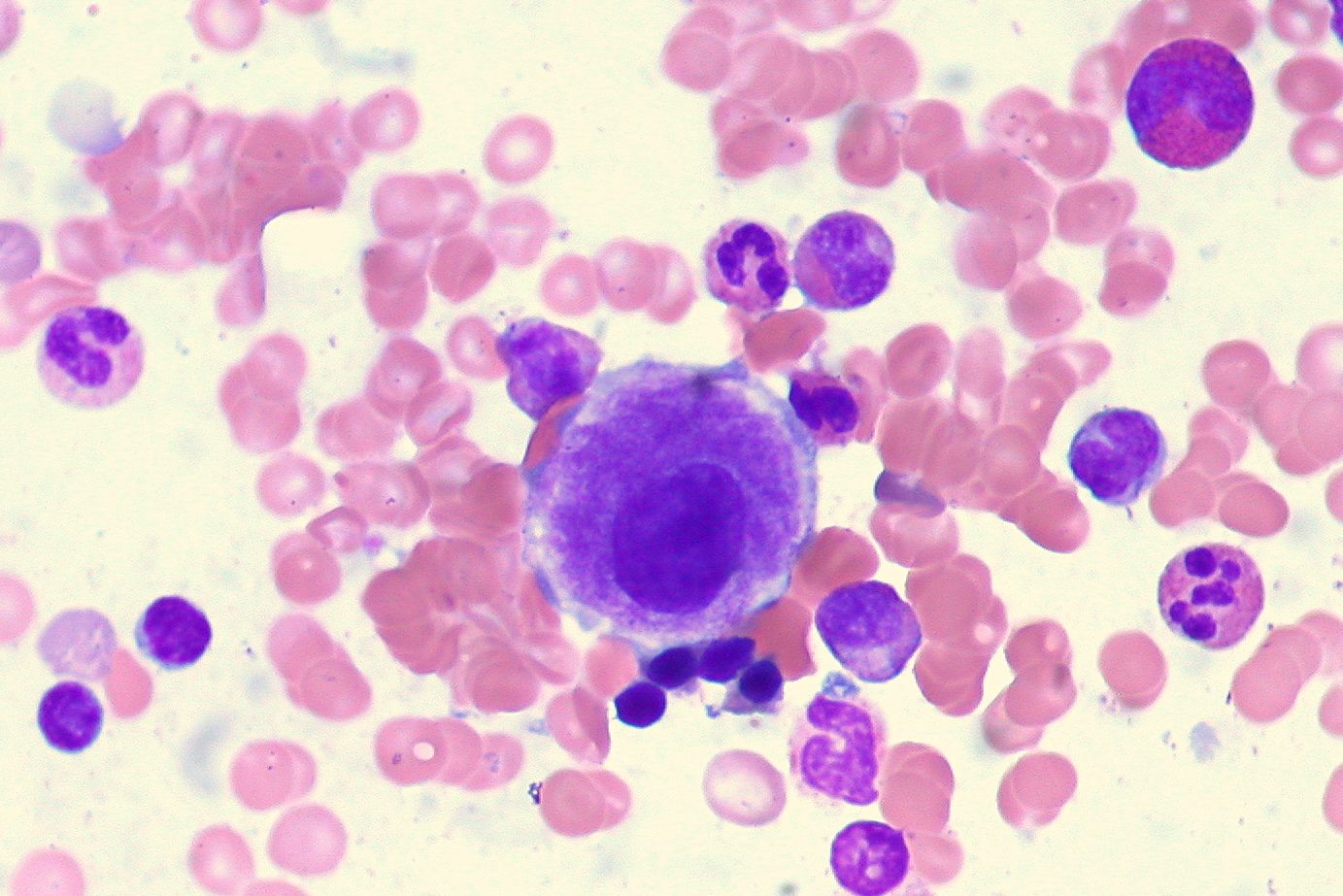Orca-T Yields Promising RFS/OS in Intermediate or High-Risk MDS
No patients with myelodysplastic syndrome have any grade 3 or higher acute graft-versus-host disease following treatment with Orca-T in a phase 1b study.
“Orca-T demonstrated promising results in this high-risk MDS patient population, including high RFS, low incidence of GVHD, and very high OS at 1 year,” according to Arpita Gandhi, MD, MS.

Treatment with Orca-T produced promising relapse-free survival (RFS), overall survival (OS), and graft-versus-host-disease (GRFS) in those with intermediate- to high-risk myelodysplastic syndrome (MDS), according to findings from a subgroup analysis of a phase 1b study presented during the 2023 American Society of Hematology (ASH) Annual Meeting and Exposition.1
At a median follow-up of 19.1 months (range, 6.3-32.2), results showed that the 1-year RFS rate with Orca-T was 94% (95% CI, 63%-99%), the 1-year modified GRFS was 75% (95% CI, 50%-96%), the 1-year non-relapse mortality rate was 0% (95% CI, 0%-0%), and the 1-year OS rate was 94% (95% CI, 63%-99%).
Additionally, Orca-T was successfully manufactured in one centralized GMP manufacturing facility for the 16 patients enrolled on the study, and was also distributed and infused throughout the United States in under a 72-hour vein-to-vein time.
“Orca-T demonstrated promising results in this high-risk MDS patient population, including high RFS, low incidence of GVHD, and very high OS at 1 year,” Arpita Gandhi, MD, MS, assistant professor of medicine, Division of Hematology/Medical Oncology, School of Medicine, Oregon Health and Science University, and coinvestigators wrote in the poster presented at the meeting.
Allogeneic hematopoietic cell transplant (alloHCT) is theorized to be a curative therapeutic approach for patients with MDS. At 1 year, the OS rate and RFS rate are approximately 65% and 69% in patients with MDS who underwent myeloablative conditioning, as seen in the RIMAC study.2
However, investigational treatments, such as the allogeneic, high-precision cell therapy Orca-T, could potentially reduce alloHCT-related toxicities, which could ultimately help improve outcomes for this patient population. Orca-T comprises both stem and immune cells derived from allogenic donors; its mechanism involves leveraging highly purified, polyclonal donor regulatory T cells in order to control alloreactive immune responses.
In the phase 1b trial, investigators explored the efficacy and safety of Orca-T in patients with intermediate- to high-risk MDS who were eligible for transplant, as per the 2017 International Expert Panel recommendations.
Sixteen patients were enrolled to receive Orca-T. All patients underwent myeloablative conditioning on day -10 to day -2. Patients underwent infusion of HSPCs and Tregs at 3 x 106 Treg/kg with a vein-to-vein time within 72 hours on day 0. On day +2, Tcon was infused at 3 x 106 T cells/kg, and single-agent tacrolimus was given at 5 to 10 ng/mL target on day +3. No methotrexate, PTCy, or other immunosuppressive therapies were given.
Historically, on day -1 in the standard therapy arm of alloHCT, patients receive tacrolimus at 5 to 10 ng/mL target, followed by infusion of the apheresis product at a cell dose of 108 to 109 T cells/kg; methotrexate prophylaxis is given on days +1, +3, +6, and +11.
Regarding baseline characteristics in the 16 patients, the median age was 59 years (range, 43-65) and 56% of patients were female. Patients either had a low (6%), moderate low (6%), moderate high (19%), high (44%), or very high (25%) Molecular International Prognostic Scoring System (IPSS-M) prognostic score. The baseline Hematopoietic Cell Transplantation-Specific Comorbidity Index was 0 (38%), 1 (19%), 2 (13%), 3 (19%), or 4 (13%). More than half of patients had an unrelated 8/8 HLA-matched donor relationship (56%).
Further findings showed that, at 1 year, no patients experienced grade 3 or higher acute graft-vs-host disease (GVHD). Two patients had moderate to severe chronic GVHD.
The authors noted that 1 patient who harbored a TP53 mutation and complex karyotype remained in complete response and had no active signs of acute or chronic GVHD at 500 days following alloHCT.
The multicenter, controlled, randomized, phase 3 trial is comparing Orca-T with standard of care in patients with MDS, acute myeloid leukemia, and acute lymphoblastic leukemia (NCT05316701).
References
- Gandhi A, Hoeg RT, Patel SS, et al. High disease-free survival in patients with high-risk MDS treated with Orca-T. Blood. 2023;142(suppl 1):2230. doi:10.1182/blood-2023-188994
- Alam N, Atenafu EG, Kuruvilla J, et al. Outcomes of patient with therapy-related AML/myelodysplastic syndrome (t-AML/MDS) following hematopoietic cell transplantation. Bone Marrow Transplant. 2015;50(9):1180-1186. doi:10.1038/bmt.2015.151
Frontline Chemo-Free Regimen Supported in HR+/HER2+ Breast Cancer Therapy
January 1st 2024Combining anastrozole with palbociclib, trastuzumab, and pertuzumab as a frontline therapy for hormone receptor–positive, HER2-positive breast cancer may avoid some of the toxicities associated with chemotherapy, says Amy Tiersten, MD.
Oncology On-The-Go Podcast: ASCO 2023 Recap
June 19th 2023Experts from University of California, Los Angeles Health and Mayo Clinic discuss key data presented at the 2023 American Society of Clinical Oncology (ASCO) Annual Meeting in the gynecologic and gastrointestinal cancer spaces and how they may impact patient care.